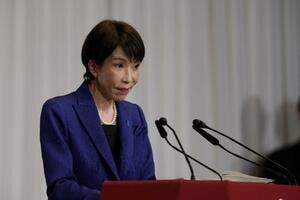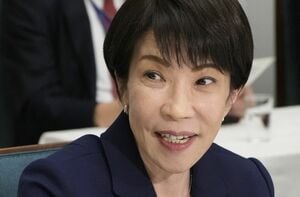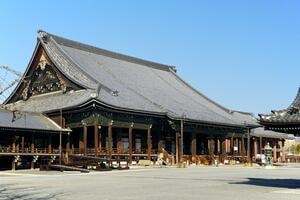Uesaka: Since people in Qatar rarely have the opportunity to see Japanese voice actors and Lolita fashion, everyone really enjoyed it. I was aware that Japanese anime is popular overseas, but the event in Qatar was my first time seeing that with my own eyes, and it was a moving experience.
There were a huge number of people of all ages there who all watched Japanese anime. There was a show called “Love, Chunibyo & Other Delusions!” that was airing in Japan at that time, and the people in Qatar told me they watched it and loved the show. There were some people who had memorized things the characters in “Love, Chunibyo & Other Delusions!” say, even though they didn’t speak Japanese, and that was really surprising.
──After that, you participated in an event in Moscow in 2013.
Uesaka: The depth of the love local people had for Japan’s pop culture was overwhelming in Moscow, too. There was a cosplay contest at the event, and there were people who spent a whole year preparing their outfits and some traveled all the way from Siberia to participate. When I saw the cosplayers dressed as the same characters getting together for group photos, I felt the same level of passion as at Japanese cosplay events and comic conventions.
Concepts of “moe” and “kawaii” that don’t exist overseas
──For the local people who came to these events, what do you think it is about Japanese pop culture that’s so appealing to them?
Uesaka: Everyone says “kawaii” to me. Apparently the concepts of “moe” (adoring affection) and “kawaii” (cuteness) are hard to find in overseas media.
When I was in college and went to Russia, I interacted with students there who were studying Japanese, and they loved “Black Butler” and “Lucky☆Star.” They told me they just found those shows so fascinating. I don’t really know what specifically drew them to those anime, but it seems like Japanese anime has a completely different appeal than the cartoons made overseas.
──One thing that’s unique about Japanese culture is the way flaws are adored.
Uesaka: That’s true. Characters in anime are often loved for their flaws like breaking down easily, being naive, or being clumsy. I guess it’s like an appreciation for incompleteness and the appeal of things left up in the air. I think that there are people overseas who can understand that feeling too.
The wonderful experience of seeing the same thing and being able to say, “it’s lovely.”
──Is there anything you’ve realized or that’s changed for you personally as a result of these cultural ambassador activities?











